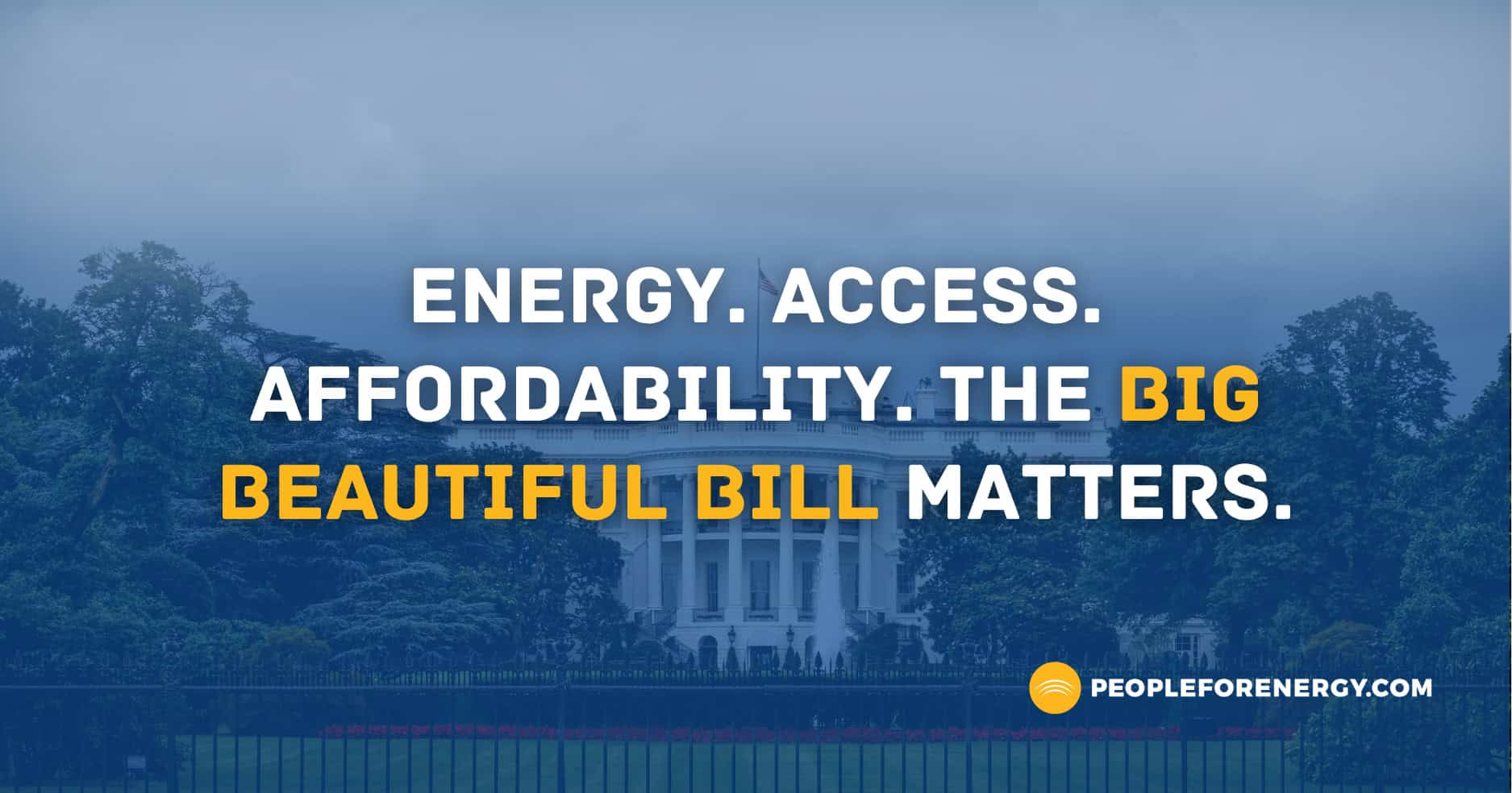A major energy bill just passed the U.S. House of Representatives, and it’s now headed to the Senate. It’s called the “One Big Beautiful Bill,” and while the name might sound unusual, the impacts are very real.
This legislation could reshape how energy is produced, permitted, and paid for in the U.S., changing everything from home energy upgrades to gas prices and grid reliability.
You don’t have to follow energy policy to feel the effects. Everyone uses energy, and everyone pays for it. That’s why this bill matters.
Understanding What’s in the Bill?
The One Big Beautiful Bill’s wide-ranging energy policy updates cover a mix of infrastructure improvements, permitting changes, and revisions to energy-related programs and incentives.
- Streamlining permits for energy infrastructure projects, including pipelines, electric transmission lines, and other energy systems.
- Expanding domestic energy development, including oil, gas, and geothermal leasing on federal lands and offshore areas.
- Adjusting or phasing out several energy-related tax credits, including those that support energy-efficient home upgrades, electric vehicles, renewable power, nuclear energy, and clean fuels.
- Reclaiming unspent federal funds from a variety of energy programs, including those related to grid expansion, low-emission technologies, and clean energy research.
Some of these provisions could help bring projects online more quickly and create jobs. Others could change how families and small businesses access tools to manage their energy costs or invest in new technologies.
What Does This Mean for Consumers?
What Helps:
- Permitting reform: Long delays and red tape can stall energy projects for years, whether it’s a pipeline or a wind farm. Speeding up approvals with strict timelines and transparent rules will help get energy projects built and online faster.
- Expanded leasing and development: More domestic production helps protect families from price spikes caused by global supply shocks. A steady supply of affordable, American-made energy is critical to household stability.
CEA’s View: Support All Power, Focus on Consumers
At Consumer Energy Alliance, we believe in all of the above when it comes to energy. Natural gas, nuclear, renewables, oil, solar, wind, hydro, hydrogen—they all have a role to play.
What matters most is that energy stays:
- Reliable – The power needs to be there when families and businesses need it.
- Affordable – No one should have to choose between heating their home or buying groceries.
- Available to everyone – Energy policies must support all Americans, not just those who can afford the latest technology.
That means preserving the tools that help consumers manage their bills, ensuring projects get built efficiently, and maintaining a strong, diverse energy mix that powers our country safely and affordably.
What’s Next?
The Senate will now take up the bill. It could change significantly through debate, budget rules, and negotiation. Some provisions may be removed, others rewritten. After that, a final version will be negotiated between the House and Senate before it reaches the President.
President Trump has voiced strong support for the legislation and has indicated that he wants the bill on his desk by the Fourth of July. While the Senate has not formally committed to that timeline, congressional leaders are continuing to work toward finalizing the package in the coming weeks.
This process is far from over, but its outcome will have lasting effects on your energy bills and how we build and manage power in this country.
Why This Matters to You?
Whether you’re a homeowner looking to cut everyday energy costs, a small business budgeting for upgrades, or a worker relying on dependable power, this bill touches your life.
- Affordable energy upgrades shouldn’t be off the table, and they should remain accessible to everyone.
- Reliable power infrastructure must be built without delays to meet growing demand.
- Energy policy should reflect what real people need, not just what looks good on paper.
The Bottom Line
The One Big Beautiful Bill is a big opportunity—and a big responsibility.
If done right, it can accelerate essential energy projects, strengthen our grid, and expand access to affordable, American energy. But to truly benefit families, workers, and businesses, the final bill must stay focused on what matters most: protecting programs that help people save, encouraging smart innovation, and ensuring our energy remains both reliable and affordable.
Because no matter where you live or what your background is, every American deserves energy that works for your home, your job, and your future.
